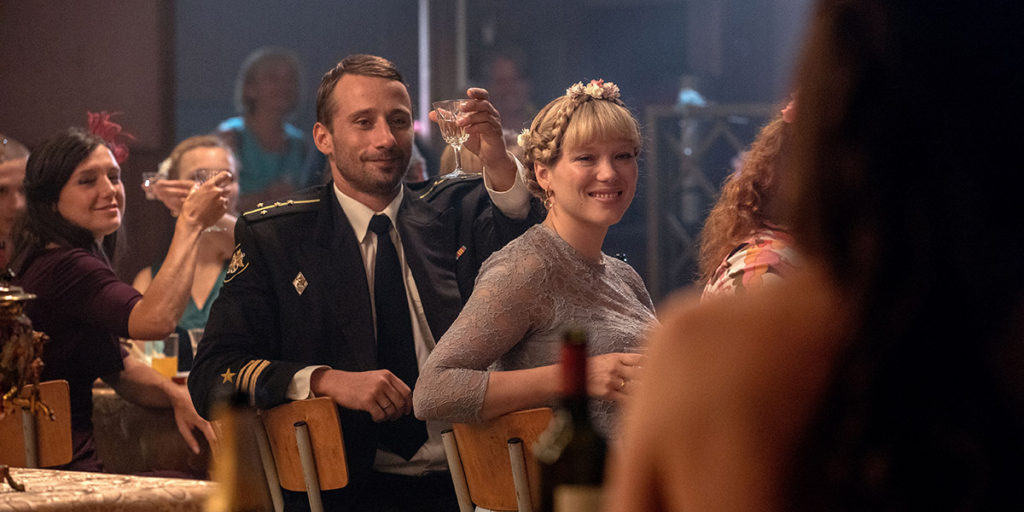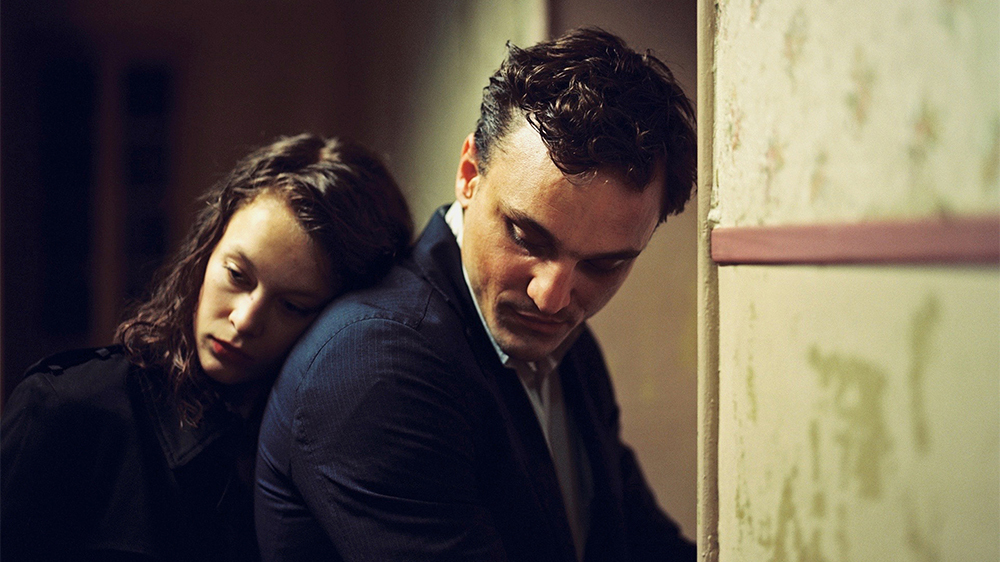The second full day of the Toronto International Film Festival brought two major awards contender and one major disappointment. Let’s check ’em out:
Shoplifters
Director: Hirokazu Kore-eda
Writer: Hirokazu Kore-eda
Stars: Lily Franky, Sakura Ando
Synopsis: After one of their shoplifting sessions, Osamu and his son come across a little girl in the freezing cold. At first reluctant to shelter the girl, Osamu’s wife agrees to take care of her after learning of the hardships she faces. Although the family is poor, barely making enough money to survive through petty crime, they seem to live happily together until an unforeseen incident reveals hidden secrets, testing the bonds that unite them…
[/info]
Cannes is a very different festival compared to TIFF, so there’s no guarantee that the film that wins the Palme D’Or at the former will play well at the latter. If the applause that greeted Hirokazu Kore-eda’s latest opus is any indication, Japan has a great shot at the Foreign Film Oscar this year.
The title Shoplifters applies to nearly every character in the Shibata family. The film opens with a grocery store theft that establishes how patriarch Osamu (Lily Franky) and his son Shota (Jō Kairi) work in tandem to execute their heists. On their way home with the spoils, they come upon a young girl Yuri (Miyu Sasaki) who is being neglected and abused by her parents. They offer her shelter in their crowded home for the night, but instead of returning her the next day, they simply adopt her as their own and carry on.
The fact that the family is effectively kidnapping is addressed briefly and then dismissed. Much of Shoplifters operates in this fashion: obviously illegal and ill-advised actions are passed over by the family, all of whom have a scam or two on the go to keep the coffers full enough to keep them afloat. The fact that this isn’t problematic is 100% of the appeal because these actors, their adventures and the easy-going mood that Kore-eda creates makes the film infectiously delightful, full of joy and pleasurable to watch.
Even at 2+ hours, the film never lags, which makes the inevitable march towards disaster and discovery all the more painful the longer we spend in the company of the Shibatas. Their love and affection for each other is contagious (particularly Sakura Ando as matriarch Nobuyo). Even when the truth is revealed in the film’s fourth quarter and undermines everything we thought we knew, it only reinforces the pathos and sympathy we have for this family of thieves. That’s the power of Shoplifters.
Grade: A
[divider]

Kursk
Director: Thomas Vinterberg
Writer: Robert Rodat
Stars: Matthias Schoenaerts, Léa Seydoux, Colin Firth
Synopsis: Follows the 2000 K-141 Kursk submarine disaster and the governmental negligence that followed. As the sailors fight for survival, their families desperately battle political obstacles and impossible odds to save them.
[/info]
What if you made a disaster/rescue flick…but had nothing new to contribute to the sub genre? That’s the unfortunate situation that Kursk finds itself in, which is especially disappointing given how talented Vinterberg is as a director.
Based on Robert Moore’s book A Time to Die, the film dramatizes the 2000 Russian submarine disaster when an entire crew of men were trapped at the bottom of the Barents Sea during a routine naval exercise. Not unlike other films mining the same dramatic territory, Kursk divides its time between the men struggling to stay alive under increasingly dire circumstances, the helpless wives and children they left behind and the rescue efforts. The latter element is the only remotely unique plot device the film has to offer as the political relations between Russia, the UK and Norwegian governments prevented collaborative efforts that might save the stranded men.
Unfortunately that point, and every other point in the film, are repeatedly belaboured over and over and OVER again to the point of exhaustion. At over two hours in length, Kursk is devoid of fresh ideas which makes the film feel interminably long. Despite best efforts by the cast, there’s simply nothing interesting for the characters to play and the odd decision to have an international cast of non-Russians play Russians in an English-language production simply doesn’t work. Kursk is an all around mess and, most damning of all, boring.
A very big disappointment coming from Vinterberg.
Grade: D
[divider]

Transit
Director: Christian Petzold
Writer: Christian Petzold
Stars: Franz Rogowski, Paula Beer, Godehard Giese
Synopsis: When a man flees France after the Nazi invasion, he assumes the identity of a dead author whose papers he possesses. Stuck in Marseilles, he meets a young woman desperate to find her missing husband – the very man he’s impersonating.
[/info]
In the fictitious world of Transit, WWII conflicts are transported to modern times as German war refugees are hunted down by police throughout France, then rounded up in cleanses and raids. When the film begins Georg (Franz Rogowski) runs an errand delivering letters to Weidel, an infamous German writer in exchange for passage out of Paris. Upon arrival, he discovers that the writer is already dead, so Georg packs the manuscript and letters in anticipation of fleeing the city with an injured friend.
After a rocky trip that includes his friend’s death, George disembarks in sun drenched Marseilles and meets an unusual collection of characters including the friend’s wife and son, a conductor, a former architect babysitting a pair of dogs, and Marie (Paula Beer), an attractive woman who continually mistakes Georg for her husband.
When Georg discovers that Weidel had the titular transit documents required for passage to Mexico, he inadvertently assumes the dead man’s identity. In short order he also discovers that Marie is the Weidel’s estranged wife who is desperately seeking to escape Marseilles with her new doctor boyfriend (Godehard Giese).
Transit is filled with stories within stories. Passages from Weidel’s novel reflect the events befalling Georg, so much so that the omniscient narrator (the local barman – a non-entity in the film) literally comments on it. Each of the refugees has their own tale to tell to consulate authorities, but while characters dip in and out of the narrative on a whim, no one ever seems to arrive or leave Marseilles. They’re trapped in a gorgeous sunny port of Hell, doomed to plot their escape and repeat events like a never ending wartime ouroboros.
One of the film’s most striking technical elements is how the production design play tricks: the mix of period fashion and 21st century architecture and contemporary cars creates a fascinating “out of time” effect. If I had one wish, it would be that Rogowski were a little more dynamic. Georg is a strangely passive protagonist; even when he is driving the narrative, Georg’s demeanour and temperament never seems to change. Still, Petzold’s continued obsession with the small stories of individuals caught up in larger German conflicts remains compelling viewing and Transit is easily the most thought provoking film of the festival thus far.
Grade: A-





